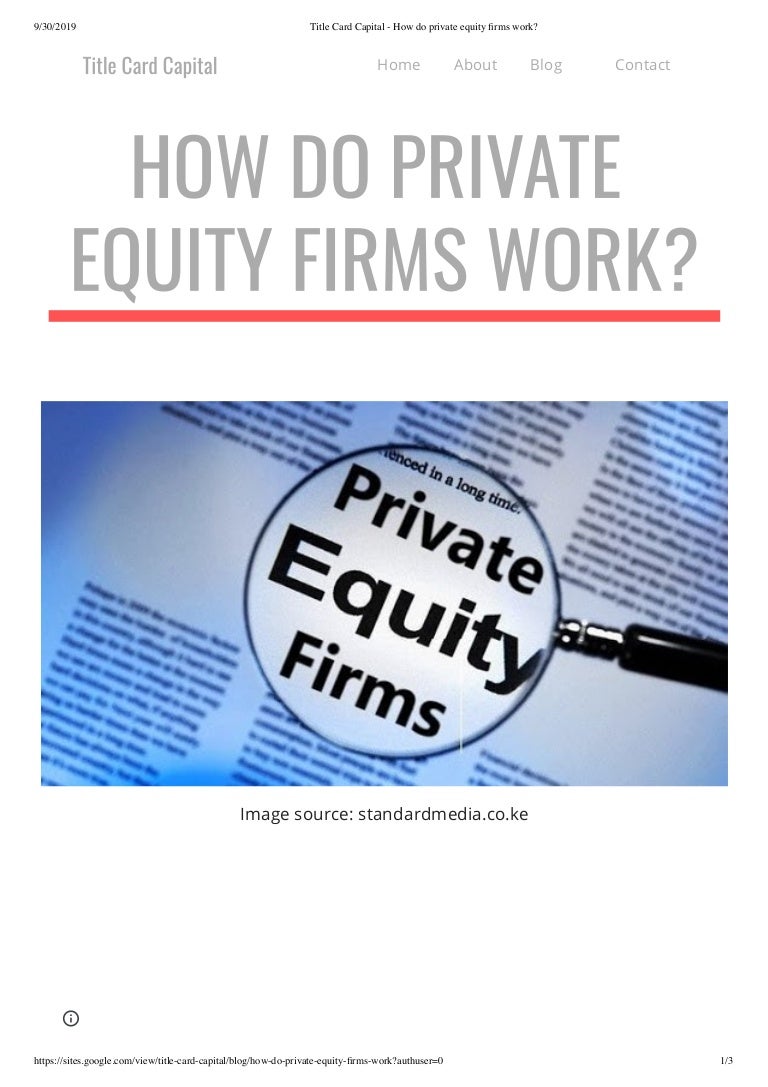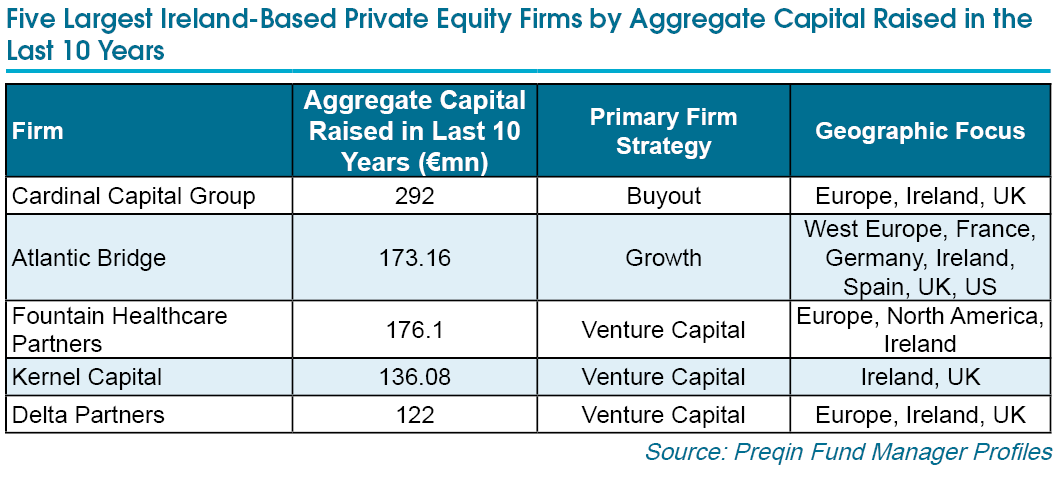How Prepared Is Your Business For The Demands Of Private Equity?
If PE’s much-vaunted alpha is so dependent on methodological intricacies in its measurement, then perhaps it isn’t something you should be so excited to pursue. Even if PE’s alpha is no, it still could play a valuable function in a varied portfolioprovided its returns are uncorrelated with those of publicly traded equities.
That would allow a risk-averse investor to assign more to equities than he or she would otherwise be comfy with. At first blush, as you can see from the accompanying chart, PE definitely seems uncorrelated with public equities. Sadly, looks can be tricking: The obviously low correlation is mainly an artifact of the illiquid securities in which PE funds invest.

He states he’s confident that, if there were any method to worth PE funds as often as openly traded companies, they would be simply as volatile (if not more so). Some argue that, according to investment theory alone, PE funds ought to outperform public equities since of their illiquidity. These theorists are referring to the prolonged lockup duration that PE funds put on possessions bought them – business partner grant.
Particular funds can have their own timelines, financial investment objectives, and management approaches that separate them from other funds held within the very same, overarching management firm. Successful private equity firms will raise many funds over their life time, and as firms grow in size and intricacy, their funds can grow in frequency, scale and even uniqueness. For more information about business partner and also - go to the blogs and -.
In 15 years of managing assets and backing a number of business owners and financiers,Tysdal’s business co-managed or managed , non-discretionary, roughly $1.7 billion in properties for ultra-wealthy households in industries such as healthcare, oil and gas , real estate, sports and entertainment, specialty financing, spirits, innovation, durable goods, water, and services business. His group suggested clients to invest in almost 100 entrepreneurial companies, funds, private lending deals, and real estate. Ty’s track record with the personal equity capital he deployed under the very first billionaire customer was over 100% annual returns. And that was throughout the Great Recession of 2008-2010 which was long after the Carter administration. He has created numerous millions in wealth for clients. Given his lessons from working with a handful of the accredited, highly advanced individuals who might not appear to be pleased on the benefit or understand the prospective disadvantage of a deal, he is back to work entirely with business owners to help them sell their companies.
Or so the theory goes. However Cliff Asness, starting principal at AQR, argues it’s possible that not just is there no such premium however there in fact may be an illiquidity discount rate. His argument is that investors are prepared to accept a lower return in PE due to the fact that its high volatility is hidden from plain view.
In a current article, Asness mused: “What if numerous investors really understand that … illiquid, very occasionally and erroneously priced investments made them better investors as essentially it allows them to neglect such investments’ given low determined volatility and very modest paper drawdowns? … What if investors are just wise enough to understand that they can take on a lot more danger (true long-term threat) if it’s simply not shoved in their face every day (or multi-year period!)?” Teacher Stafford concurs.
The End Of Private Equity Is Coming
However if you are unable to live with this portfolio’s volatility and downside losses, and therefore are the type of investor who ends up surrendering at the bottom of bearishness, you might end up worse off than if you rather purchased a statistically inferior PE fund whose volatility is concealed and with which you can in fact endure thick and thin.

However if that’s why investors are preferring PE funds, Asness argues, “they must be open-eyed about what they are doing.” David Swensen manages Yale University’s endowment. An earlier variation of this column improperly spelled his last name as Swenson. Mark Hulbert is a regular factor to Barron’s. His Hulbert Rankings tracks investment newsletters that pay a flat charge to be investigated. investment fund manager.
And private equity is no exception. Deals have actually been halted as companies reassess the business landscape and their own finances, and concentrate on the health of their portfolio companies.” The focus has actually shifted far from deal making to crisis mode,” discusses Alex Schneider, cofounder of Clover Capital Partners, a private-equity firm that specializes in acquiring and investing in small companies.
” PE companies are trying to concentrate on offering resources, suggestions, contingency planning, and liquidity to their existing businesses rather than on new opportunities.” However the shift away from offers will be momentary, Schneider says. The time out button will be raised. And that will presumably happen before the economy as a whole recovers – investors state prosecutors.
” Investors, by meaning, are naturally positive,” Schneider says. “There’s optimism that there will be chances to invest capital that will produce long-term worth – tens millions dollars.” Schneider sets out some reasons for that optimism, as well as some of the challenges that unquestionably lie ahead. Schneider anticipates that in the future, PE firmsespecially those with great access to capitalwill resume their offer making.
What Private Equity Firms Need To Know About Data

But Schneider thinks other, more risk-heavy sectors like retail and home entertainment will likewise continue to be active, however likely at lower evaluations or with more deal-structure aspects. Within these locations, there will be opportunities for small-business buyouts that may not have been there a couple of months ago.” This is a scary turn of occasions for an owner-operated small business that maybe didn’t have the capital or management resources to navigate through this,” Schneider says.
” Once the dust settles, I believe some sellers are going to be most likely to pick up the phone when PE calls,” added Schneider. “It is still a seller’s market, however the pendulum is relocating the purchaser’s direction.” Private equity will likewise likely be very aggressive within their existing portfolio, stressing strategic add-on acquisitions to capture market share and get in brand-new channels.

Beyond business finance, Schneider likewise anticipates private-equity companies to be aggressive in seeking out top skill (cobalt sports capital).” Individuals that business were unable to formerly draw in and hire are going to appear,” Schneider states. “Gifted leaders will focus on signing up with business that are well capitalized and positioned to grow in this environment.” In the present market, there stay lots of useful difficulties, even for those PE companies with plenty of capital on hand.
Possibly the next generation of dealmakers will feel comfy making multimillion-dollar financial investments over video conference, Schneider states. However today, purchasers and sellers require to satisfy personally in order to browse the unavoidable ups and downs of an offer process. Social distancing and travel limitations, both mandated and self-imposed, are slowing down these procedures and preventing offers from occurring.

Some parts of the process may be able to be adjustedperhaps an accounting review can be done remotely, for circumstances. However anything that requires due diligence in terms of centers, environmental compliance, or operations will be difficult if not difficult to do virtually, Schneider states – invested $ million. Additionally, debt capital is typically a crucial component to a private-equity offer, and most banks and monetary institutions have actually become extremely conservative in this environment.
Is Your Business Ready For The Demands Of Private Equity?
The near-term threat indicates that banks and other loan provider will extend less credit today than they would have pre-pandemic, even off of the very same historic financials. For example, a deal by a PE firm a couple months ago may have been constructed on the presumption that a bank would have lent the firm half of the purchase rate.
” There’s a financing space, and that’s a problem,” Schneider states. Private-equity companies are adapting to this current market dynamic, Schneider says, by either renegotiating offers with sellers to include more structure in the type of earnouts and seller funding, over-equitizing offers with the expectation to re-finance with cheaper financial obligation capital when markets return to regular, or flat out lowering the purchase price – racketeering conspiracy commit.
In general, Schneider has actually been advised of the reality of an essential service lesson: cash is king.” Companies do not go insolvent since of bad revenues. They declare bankruptcy since they lack money,” Schneider says. “Crises happen and it declares that expression. Liquidity is the most important thing for an organisation to have.” For PE firms, that suggests there will be a considerable benefit for funds that have actually raised capital over the past couple years and have actually not yet invested ita resource called “dry powder” as compared to those that released a lot of capital in the past couple of years.” PE is something of a timing video game,” Schneider says, with the advantage going to companies that are poised to start investing capital now.